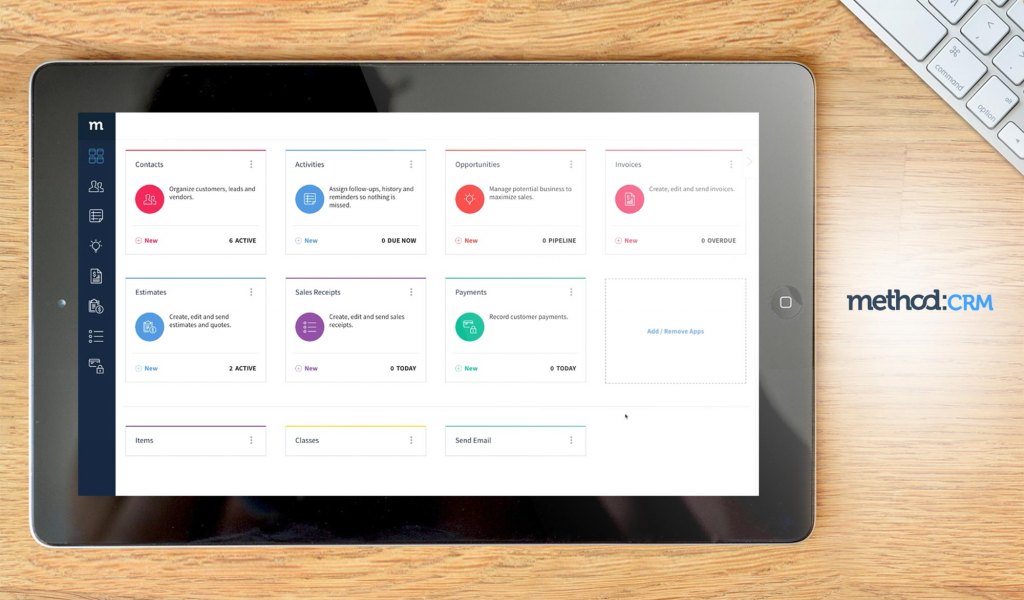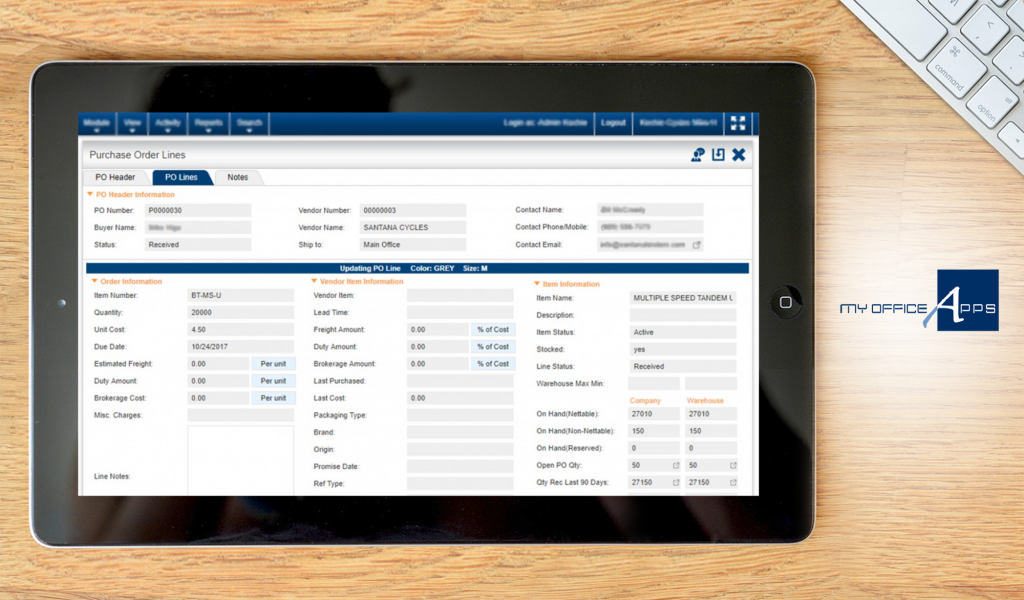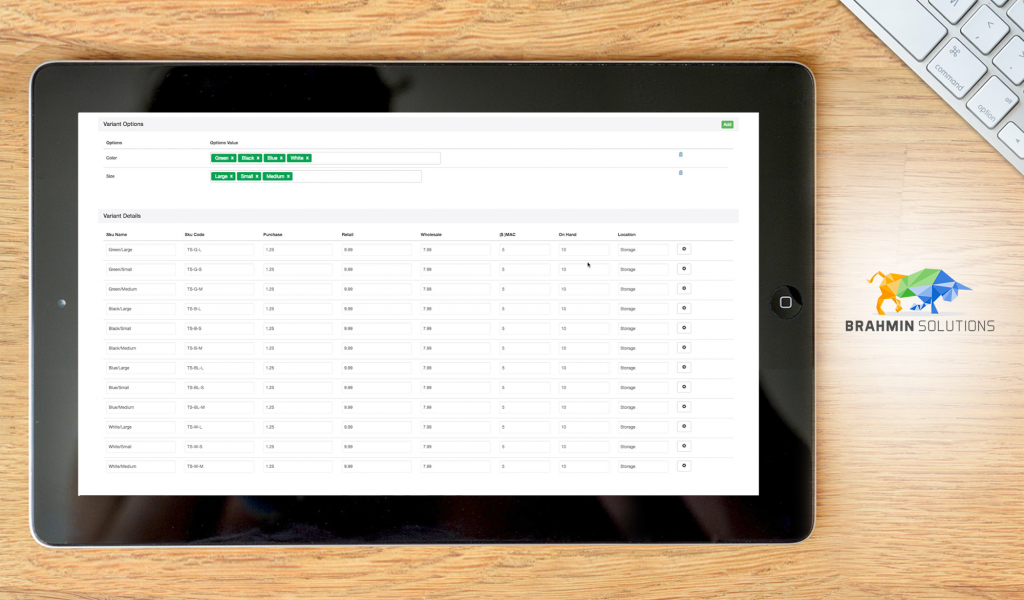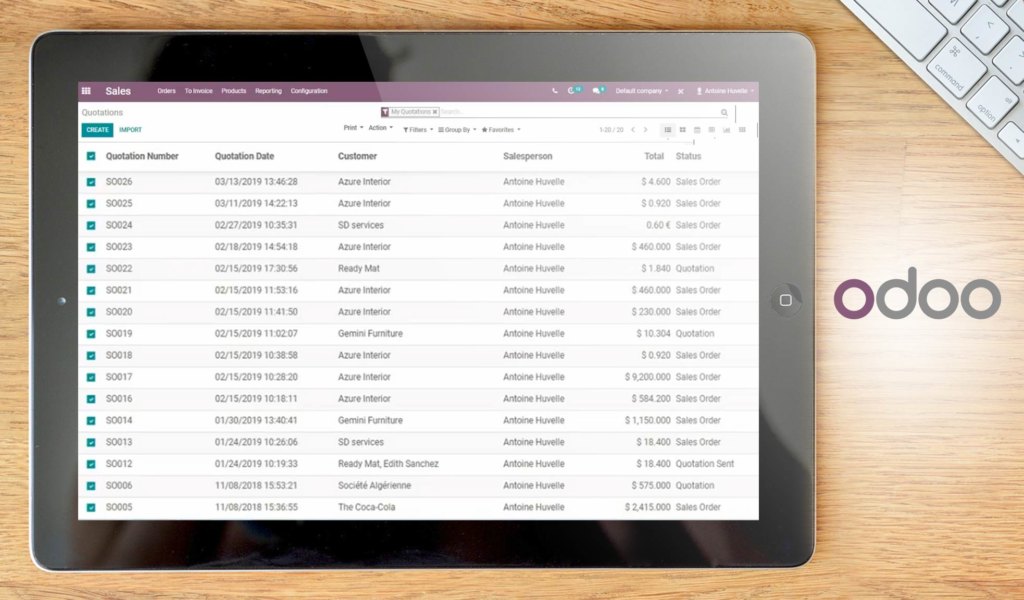Even if yours is a startup or a small business, you are likely to have numerous business processes that can be difficult to keep up with on paper. Such a scenario can lead to disparate information, which can cause bottlenecks in workflows that could be detrimental to your organization.
It is not so hard to prevent such things from happening though, as there is one particular software solution that can help connect the dots. That is enterprise resource planning or ERP software. If you are unsure about what it does, don’t worry.
In this article, we discuss what benefits you can gain from using it. We also list some examples of ERP platforms and what they can offer your organization.

What are examples of ERP software?
A growing number of small businesses are utilizing ERP like their larger counterparts. Much of it is driven by the need to cope with the changing requirements of their respective industries, as can be observed during the ongoing pandemic. But how are they going about implementing it?
As it turns out, the most popular ERP implementation approach is the hybrid approach (29.7%), followed closely by having all business units using the same module (24.75%). If you are still using legacy ERP systems but looking forward to benefiting from cloud ERP, then the hybrid approach makes sense.
Source: Panorama Consulting Group, 2020
Finally, note that lessons from the field indicate that involving employees during the selection (56.7%) is more effective than before selection (30%) and right before going live (13.3%) to ensure the success of the ERP implementation.
ERP providers are evolving their offerings to attract more users from small businesses. While it can still be a bit pricey, they can actually save money in the long term. Plus, the cloud is pushing ERP solution adoption and is evolving it. With modern business going this way, it makes no sense to hold to legacy systems, especially if the benefits are all there to see.
ERP Software Explained
Before we discuss the many benefits of ERP software, let us first talk about what it is. ERP or Enterprise Resource Planning programs are comprehensive systems that optimize core business processes. They allow you to make use of integrated applications that can collect, store, manage, and analyze data according to the requirements of your company.
Whether you want to keep track of business resources, monitor the status of your business’ commitments, or review employee information; ERP programs can provide you with the tools needed to automate, accelerate, and improve these tasks. These also have capabilities that support a variety of other business functions.
Among the key ERP capabilities are:
- Inventory Management
- Financial Management
- Customer Relationship Management (CRM)
- Human Resource Management (HRM)
- Supply Chain Management (SCM)
- Compliance Monitoring
- Customization and Integration Capabilities
- Intelligent Data Analysis
- Automated Reporting
- Project Management
- IT Optimization
- Business Intelligence
Benefits of ERP Software
ERP software solutions were created to integrate all the tools necessary for managing a business’s external and internal operations. Without it, executives and business owners will have to rely on multiple programs for different processes, making data migration and analysis too complex and time-consuming.
The rise of AI and machine learning is adding a new layer of functionality, too, to accounts payables never before seen in older ERP systems. IDC Program Vice President Mickey North Rizza provided a case in a CIO article, “Deciding when to take an early payment discount on an invoice payment is [one] area where AI impacts ERP.” With ERP, your organization gets to optimize your processes and reap the following benefits:
Increased Productivity and Efficiency
Back-office duties take your time and attention away from actually running your business. The purpose of ERP software is to help you quickly accomplish these responsibilities to increase your operation’s productivity and efficiency. With this technology, you can automate tedious tasks such as compiling reports, updating inventory information, and monitoring your sales while reducing the risk of human error. On top of that, all these information are recorded and compiled in your dashboard, so you can get a quick look at your business’s performance with just a few clicks. Aside from an ERP system, you can also count on other productivity tools to increase employee outputs.
Reduced Operational Costs
Delays and disruptions in your business operations can compromise your company’s reputation as well as result in losses in the long-run. Through an ERP system, you can merge processes across departments, making it easier to anticipate and identify problems as well as come up with ways to resolve them quickly.
Faster and More Accurate Reporting
Data integrity is an essential part of any business operation. To help you ensure the accuracy and consistency of all the information you store in your database, ERP systems are geared with business intelligence tools and machine learning capabilities. These allow you to use advanced filters and real-time analytics to sift data for inconsistencies, analyze information, and generate insights on performance, so you can make the necessary adjustments to your operations efficiently and effectively.
Integrated Information Repository
Accessible on-premise or via the cloud, these platforms often serve as an integrated information repository for many companies. It stores data coming from different devices and organizes them according to the requirements of the users. From inventory details and sales reports to employee information and customer files, all the documents that you need for your operations can be housed within this system and can be accessed whenever you wish. This saves you and your employees time whenever you need to pull files for specific purposes, especially when you are coordinating with different departments.
Flexible Business Operations
ERP software is not a one-size-fits-all solution. It is a highly configurable system that supports multiple integrations and third-party applications. This way, you can easily tailor it to the unique needs of your company and even have it adapt to the changing requirements of your growing business.
Reinforced Data Security
ERP programs allow you to access information from anywhere and at any time you desire, but this doesn’t mean that you are compromising the security of your data. These software solutions are often equipped with firewalls, restriction controls, and ransomware prevention, so you can safeguard confidential data without limiting user access to other information. ERPs also have features that allow you to pinpoint unauthorized activity within your system and provide insights on how to proceed with these issues.
Simplified Regulatory Compliance
Regulatory compliance is an issue that businesses across many industries are extremely familiar with. Industry standards change from time to time, making it difficult to keep track of if you do not constantly monitor it. To help you stay up-to-date on various regulatory processes, most ERP software has compliance reporting features that monitor any changes in compliance protocols and notify users in real-time.
Leading Examples of ERP Software
With the fundamentals of ERP software explained, we can now move on to helping you choose one for your company. Finding a program that suits your business is crucial to the success of its implementation, so bear in mind that you must first assess what your company needs before you start browsing for software solutions. To help you get a better perspective of about what this technology has to offer, we have listed down some of the leading examples of ERP software available on the market:
1. NetSuite ERP

NetSuite ERP is an enterprise resource planning program for growing businesses, medium-sized companies, and large corporations. Completely scalable and fully equipped with robust features, this software solution automates different business operations. Among these processes include financial management, revenue management, billing, and inventory management. One of the many reasons why customers prefer NetSuite ERP is its warehouse administration tools, which allows users to manage their inventory end-to-end, with regularly updated fulfillment data.
2. Wrike

Wrike is a cloud-based collaboration solution that simplifies project management, deadlines, schedules, and more. Companies, such as Google and Mcdonald’s, use it for teamwork and external collaboration. It helps customize project views with task statuses, real-time updates, and graphs. Wrike makes it easy to notify teammates with its @mention feature. You can keep track of your emails by converting them to tasks and sending them to Wrike with one click. Wrike integrates with most B2B apps in one place and supports nine languages. It offers a free plan and three paid plans.
3. Acumatica

Acumatica is a cloud-based enterprise resource planning (ERP) solution that helps small, growing, and midmarket-sized companies build resiliency and become flexible and efficient in the digital economy. It gives organizations the right foundation to be able to continue growing amidst market changes by equipping them with a robust suite of ERP tools. For companies that also engage in mobile and telework scenarios, Acumatica delivers the right applications for uninterrupted operations.
4. Rossum

Rossum is a highly customizable document-management-based business solution used in many settings including accounts payable (AP) and logistics. Its single document gateway system is powered by a self-learning AI that scans, collects, and validates documents such as invoices and forms. The solution provides users with a wide range of customization and automation tools to manage document traffic may they be invoices and purchase orders to packing lists and claims. Its intelligent engine understands documents and can be configured to control and act according to set rules. Thus, it is an invaluable business solution for companies such as National Geographic, Twitter, and GoDaddy.
Detailed Rossum Review
5. Method:CRM

Method:CRM is a unique cloud-based software solution designed to integrate with QuickBooks. It comes equipped with real-time activity tracking, customer service ticket management, invoice customization, customer payment portals, and more to allow sales professionals to make the most out of each opportunity. It also performs seamless syncing of invoices, time tracking entries, and customer data to make sure that all team members have a single source of truth. This way, teams can deliver consistent end-to-end experiences to customers.
6. Scoro

Scoro is a cloud-based end-to-end business management solution for SMEs and large enterprises. Packed with integrated functionalities, the platform automates the entire workflow and raises a business’s potential for earnings. Its solutions include project management, task management, financial management, invoice management, customer management, and resource planning. To further extend its capabilities, Scoro integrates with popular tools like Google Calendar, Mailchimp, and Zapier. It also carries a native mobile application, available to iOS and Android users.
7. Kechie ERP

Kechie ERP is a fully-integrated ERP solution ideal for businesses in electronics, apparel, electronics, pets, food, and consumer goods industry. It provides a variety of tools for inventory management, sales order management, procurement, finance, warehouse management, and manufacturing CRM. With Kechie ERP, you can automate and synchronize a number of functions, including cycle counting, inventory tracking, financial planning, and profit and invoice tracking.
Detailed Kechie Review
8. Tipalti

Tipalti is a unique enterprise-grade accounts payable (AP) platform with top-of-the-line global mass payment capabilities. It is a comprehensive ERP solution fitted with powerful modules for managing procurement, suppliers, invoices, and payments. It has a smart billing and monitoring function complete with payment reconciliation capabilities. Moreover, it provides users with elite fraud detection features and financial controls. Users can also rest assured of tax and VAT compliance, thanks to Tipalti’s risk management capabilities. As such, it is a go-to end-to-end AP for businesses across industries ranging from financial services to video games.
Detailed Tipalti Review
9. Brahmin Solutions

Brahmin Solutions provides robust inventory management system that enables businesses to manage multi-platform sales channels and multi-location warehouse on a single platform. This ERP solution also comes with accounting features, manufacturing, advanced reporting tools, and more. Brahmin Solutions is ideal for distributors, manufacturers, wholesalers, and growing retailers, and it is highly customizable depending on the size and needs of your business.
Detailed Brahmin Solutions Review
10. Odoo

Odoo combines sales and project management and integrates them with other tools for POS, ecommerce, and MRP. This has made it a universal solution that can be utilized by businesses, regardless of the industry they are in. Since it has multifarious functions under a single umbrella, this ERP platform can slowly replace legacy applications or redundant software. Plus, it is modular, allowing you to customize it to your needs at any time.
Detailed Odoo Review
Things to Remember When Implementing an ERP Software
An ERP software is only as good as the people using it and its configuration. When everything is set up properly, it should be able to assist you in your daily tasks and make sure that you get the information you need at every turn. However, for your investment to provide returns, you have to implement it carefully. On that note, here are some things to consider when implementing your selected ERP platform:
Users
You are excited about rolling out the ERP solution but are your intended users excited about it, too? Before you complete or even begin the process, make certain that your employees are on board and that they are educated about an ERP. Thus, proper training is important for them to maximize the software and for them to know exactly how to use the tools to get the results they need. You can do this on-site by gathering them at a venue on a particular schedule or you can let employees learn by themselves using an elearning solution. Not only would this help them get to know the ERP software, but employing an LMS would also lead to organizational growth.
Off-the-shelf Package
If this is your first time implementing an ERP platform, going with the off-the-shelf solution is your best bet. This way, you can use it right off the bat. Later on, when you have familiarized yourself with the interface and its functions, you can add more modules and play around with configurations.
Business Intelligence
Even if you have the most robust ERP software, it can only provide you with the most accurate reports if it is connected with every data source available. By integrating with databases, you can be confident that you have a complete view of your business and the status of your operations. But if you want, you can synchronize with a standalone business intelligence software for small and large businesses alike.
Sign up for a Free Trial and Benchmark
When you are confident that you have addressed all issues regarding implementation, you can go ahead and revolutionize your business. A good starting point is signing up for a free demo of our top choice here, NetSuite ERP. Thereafter, you can benchmark the others versus NetSuite to see which one is a better fit. But if you are still not yet sure of getting an ERP software solution for your company, you can find out more about the importance of an ERP platform.
Key Insights
- Enhanced Productivity and Efficiency: ERP systems automate and streamline back-office tasks such as report compilation, inventory updates, and sales monitoring, reducing manual effort and increasing overall efficiency.
- Cost Reduction: By integrating processes across departments, ERP systems help anticipate and resolve operational issues quickly, reducing disruptions and associated costs.
- Accurate and Fast Reporting: ERP solutions utilize business intelligence tools and machine learning to ensure data accuracy and consistency, enabling quick and insightful reporting.
- Centralized Information Repository: ERP platforms act as a centralized hub for data from various business functions, making information easily accessible and organized for efficient operations.
- Flexible and Customizable: ERP software supports various integrations and can be tailored to fit the unique needs of different businesses, adapting as the company grows.
- Enhanced Data Security: Equipped with robust security features such as firewalls and ransomware prevention, ERP systems safeguard sensitive data while allowing controlled user access.
- Regulatory Compliance: ERP software often includes compliance monitoring tools that keep businesses updated with industry standards and regulatory changes.
- Employee Involvement in Implementation: Involving employees during the ERP selection process increases the likelihood of successful implementation and user adoption.
- Cloud Adoption: The shift to cloud-based ERP solutions is driven by the need for scalability, flexibility, and long-term cost savings compared to legacy systems.
FAQ
- What is ERP software and what does it do?
ERP (Enterprise Resource Planning) software is a comprehensive system that optimizes core business processes by integrating various applications to collect, store, manage, and analyze data according to the company’s needs. - How can ERP software increase productivity and efficiency?
ERP software automates tedious tasks such as compiling reports, updating inventory, and monitoring sales, reducing manual effort and human error. This automation allows employees to focus on more strategic activities, thereby increasing productivity and efficiency. - What are the cost benefits of implementing an ERP system?
By integrating processes across departments, ERP systems help identify and resolve operational issues quickly, reducing disruptions and associated costs. This leads to long-term savings and improved financial performance. - How does an ERP system ensure accurate and fast reporting?
ERP systems utilize business intelligence tools and machine learning to sift through data for inconsistencies, analyze information, and generate real-time insights, ensuring data accuracy and enabling quick reporting. - What makes ERP software flexible and customizable?
ERP software supports multiple integrations and third-party applications, allowing businesses to tailor the system to their specific needs. This flexibility helps the software adapt to changing business requirements as the company grows. - How does ERP software enhance data security?
ERP systems are equipped with advanced security features such as firewalls, restriction controls, and ransomware prevention to safeguard sensitive data. They also allow for controlled user access and provide insights on unauthorized activities. - What role does ERP software play in regulatory compliance?
ERP systems include compliance monitoring tools that track changes in industry standards and regulatory protocols, notifying users in real-time to ensure the business remains compliant. - Why is involving employees in the ERP selection process important?
Involving employees during the ERP selection process ensures that the system meets their needs and increases the likelihood of successful implementation and user adoption. - What are some leading examples of ERP software?
- Some leading examples of ERP software include NetSuite ERP, Wrike, Acumatica, Rossum, Method, Scoro, Kechie ERP, Tipalti, Brahmin Solutions, and Odoo.
- What should be considered when implementing an ERP software?
Consider the readiness and training of users, starting with an off-the-shelf solution for ease of use, integrating with all relevant data sources, and benchmarking different solutions through free trials to find the best fit for your business.





























Leave a comment!